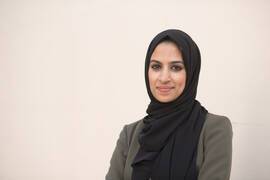NHS England: Celebrating Eid ul-Adha 2022
NHS England have issued the following advice around Eid ul-Adha:
With Eid ul-Adha and other summer festivities just around the corner, many people are looking forward to celebrating with loved ones, and the chance to come together to recite our prayers and savour delicious meals.
For many others, the long summer months ahead offer the prospect of fun days out, relaxing holidays and memorable times with our family and friends. We all want to make the most of it and whilst there’s nothing we can do to improve the British weather, there are a few things we can think about so we’re able to enjoy our time off.
Making a few little changes to your routine or taking health advice will help you be on top form, regardless of whether you’re living with a long-term health condition, feeling a bit under the weather, or have any worries about your health or fitness. And taking precautions about COVID-19 when you’re out and about will help make it a summer to remember for the right reasons.
Celebrating safely
Many community celebrations and events are returning this year after a two-year absence due to the COVID-19 pandemic. Eid in the Square made a spectacular return to London’s Trafalgar Square in May, marking the end of fasting for Ramadan. Thousands of people descended on the capital to celebrate together, whilst the West Midlands hosted the successful South Asian Culture Festival. 
The summer is set, with more family-friendly events planned, including melas with traditional dance, music and food. With social gatherings like these returning as a part of normal life again, COVID-19 may seem like a distant memory but with transmission rates rising across England, we must remain cautious.
Dr Nikki Kanani, a GP and Medical Director of Primary Care for NHS England, urges people to remember to stay safe when out and about, taking easy, simple steps to protect themselves and others.
She says: “Whilst we’re enjoying the hot and sunny weather, it’s easy for us to believe that COVID-19 has gone away. Even though we may be hearing less about it, the virus is still with us, and growing numbers of people are being infected. But there are things we can do to protect ourselves, our families and friends.
“Of course, we want to celebrate and spend time with loved ones during the summer, and when celebrating religious events that are important to us, such as Eid, Janmashtami or Paryushan. But if you feel unwell, please stay at home and avoid mixing with others, particularly with elderly family members or those with weakened immune systems who are at greater risk of complications from Coronavirus.”
Staying COVID safe over summer
During the pandemic, restrictions were put in place to keep people safe. This meant that large events and festivals were cancelled or postponed.
Although most restrictions are no longer in place, COVID-19 rates are rising and putting people at risk of serious illness. Continuing to follow basic steps like staying at home when you are ill, washing your hands regularly, covering your mouth when you cough or sneeze, and keeping a window open when you have guests indoors, are still important to help reduce risk of infection.
The COVID-19 vaccine is available to everyone over the age of 5 and tens of millions of people have had at least one of their recommended jabs already, significantly reducing their chance of catching the virus, becoming seriously ill or needing to go to hospital.
Everyone aged 16 and over can get two initial doses, followed by a ‘booster’ dose. So can those aged 12 or over and at greater risk from the virus, for example because they or someone they live with has an underlying health condition, medication or treatment that weakens their immune system. Some in these groups will need an extra dose too – a clinician will be able to advise on what is needed and the best timing.
“Having all the doses of vaccine that you need will give you the best protection against Coronavirus during summer,” Dr Kanani adds. “If you’re having a summer holiday or family get together like a wedding or celebration in August, getting protected as soon as you can, will maximise your protection ahead of this.”
COVID-19 spreads easily when people come together, such as mixing in new groups or crowded places, and getting all doses of the vaccine you need, as soon as possible, will ensure you get the best protection.
Community leaders and health experts continue to encourage people to come forward for their vaccination, and to share any questions or concerns.

Dr Hina J Shahid (General Practitioner and Chairperson for the Muslim Doctors Association) says: “Data shows that vaccines have been extremely effective in preventing serious illness and death from COVID-19. We have been working with local communities to encourage people to have all of their vaccines. Through sharing information and helping people to have their vaccinations, leaders in all of our Asian communities have made a huge difference in helping to save lives.
“Vaccines have gone through rigorous testing, including on people from our community, so we can trust it to protect us against the virus. It’s also not too late to have your first, second or initial booster dose.
“These are free, you don’t need to be registered with a GP, and you also don’t need to have an appointment. Simply check online for a convenient vaccination walk-in site near you and drop in. If you’re still unsure about the vaccine, please ask a health professional who can answer any questions you might have.”
Having fun in the sun
When taking part in any activity outdoors, whether in the UK or overseas, it’s advisable to protect your eyes and use at least a factor 30 sunscreen offering both UVB and UVA protection. Applying this regularly, even on a cloudy day, helps protect your skin from damage and reduces your risk of sunburn which can increase your risk of skin cancer.
People with naturally brown or black skin can still develop skin cancer and are more vulnerable to burning if they are only exposed to intense sun occasionally (for example, while on holiday).
Extra care is needed to protect children and babies’ sensitive skin and some adults are also at greater risk because of a long-term medical condition or treatment. Further advice is available from NHS.uk
It’s also important to stay hydrated and remember to drink water regularly throughout the day. While easily forgotten when you’re enjoying a day out, it’s essential for our health, particularly in the warmer weather.
Going abroad?
Whether making a pilgrimage, visiting family, working away or taking a holiday, you might be wondering about COVID-19 and how to stay safe. You might also have questions about travel vaccinations.
In just the same way you’d want to make sure your passport and holiday insurance are up-to-date, making sure you have had all of the vaccinations you’re eligible for could avoid your plans being ruined.
Information about how to get your COVID-19 vaccination can be found at https://www.nhs.uk/conditions/coronavirus-covid-19/coronavirus-vaccination/ and via the NHS app. The app also records the doses you receive, and you can use it to obtain a COVID Pass which may be necessary for your travel and holiday providers. Whether it’s your first, second, or a booster dose, no appointment is necessary – visit www.nhs.uk or scan the attached QR code for a walk-in site near you. Whichever option you choose, you will be welcomed by the NHS.
If you’re living with a long-term condition and need regular medication, don’t forget to order your prescription in plenty of time especially if you’ll be away from home over the August Bank Holiday weekend. If you’re in the UK and need advice, you can visit NHS.uk, or contact NHS111 online or by calling 111.


